Current IssueFrom the Editors
We have had an extraordinary presidential primary in 2016: in addition to the establishment candidate, Hillary Clinton, we have an authoritarian demagogue, Donald Trump, who has unleashed a reactionary rage which harkens back to fascism, and another, Bernie Sanders, who calls himself a democratic socialist. The Foreign Policies of Sanders, Trump, and ClintonAmerica and the World in 2016 and Beyond
The world today is faced with crises on virtually every front, and any assessment of the foreign policy positions of the two major parties’ 2016 presidential candidates must measure how well they respond to these crises. The Contemporary Crisis of the American Ideology
Surveying the political scene in America, we are now witnessing the shattering of the last remnants of the American ideology that has maintained itself—despite strains—for almost 70 years. The ideas that justified the American economic and political system in the minds of most of our citizens throughout that long period came under stress during earlier storms—from the 1950s to the 1970s in particular—and a few beams and joists cracked but did not give way. Today the manifold crises of capitalism mean that the entire existing intellectual structure of American capitalism is breaking up. And because of the role that the U.S. capitalist class plays in the world, this represents a crisis of world capitalist leadership and legitimacy. The question then arises: What will the country’s rulers attempt to put in its place, and what alternative explanation will we on the left and in the labor movement be able to offer to the country’s workers? Welfare Reform and the Ghost of the “Welfare Queen”
Like a spectral apparition from a Shakespeare play or an M. Night Shyamalan film, the dreaded ghost of welfare reform is making a ghoulish comeback on Capitol Hill just in time for its twentieth anniversary. Kiddin’ on the SquareThe Politics and Poetics of Mose Allison’s Blues
In October 1969, pianist/ singer/composer Mose Allison recorded “Monsters of the Id.” At a time when recent history had witnessed a police riot at the 1968 Democratic Party Convention, the police crackdown on protesters at Berkeley’s People’s Park, and popular backlash against anti-war, New Left, counter-culture, and Black Power sentiment, Allison began by warning that the title characters no longer remain hidden, but have come out in full view. To the accompaniment of a slightly discordant horn section, Allison—singing in his characteristic style, with its idiosyncratic pauses and accents—spins a variety of often ghoulish metaphors that remain just as timely in today’s era of Tea Party, torture reports, Stand Your Ground, and Donald Trump: “They’re sprouting through the cracks ... They’re deputizing maniacs / Creatures from the swamp rewrite their own Mein Kampf.” The Neo-colonization of Central America
The colonization of Latin America never ended, it merely changed forms. Today this conquest continues, with transnational companies driving neo-colonization grounded in the continued exploitation of natural resources. This is nowhere more true than in Central America. The force of neo-colonization is strengthened by free-trade agreements and development plans that guarantee a company’s right to investment above the rights of the citizenry. Meanwhile, the indigenous populations face renewed dispossession and eviction to make way for global capital’s conquest. The Struggle Against Syriza’s Austerity Program
“The Hammer Blow of the Revolution”Rosa Luxemburg’s Critique of Bourgeois Democracy
Feminisms of the Left
Theses on Saving the Planet
Food Justice + Food SovereigntyCan the U.S. Food Justice Movement Join the Global Movement?
In the United States today, there is a fresh opening for progressive alliances. The various movements—Black Lives Matter, the Fight for $15, climate change, immigrant rights, LGBT rights, Bernie—have different roots, structures, and foci, but they share a recognition that we are being crushed by the newest form of capitalism—as they call it in Latin America, “capitalismo salvaje”1 (savage capitalism)—and that we must stand up to it with all our might, with all our people. Bogdan Denitch
Art Lipow
Donald Rooum
After Bernie—Party Time?
Death, Politics, and the Anthropocene
Blueprints for the Future
Designing Socialism is a complete reprint, as an e-book, of the special April 2012 issue of the American academic Marxist journal Science & Society. It continues that publication’s tradition of providing, as stated by its usual editor David Laibman, “a major worldwide pulse-taking of the state of play in theoretical socialism” every April of the years ending in “2” in every decade (Campbell, ed., 7). Syria Is Burning, But What Fuels the Fire?
Syria is the focus of the world’s attention. However, the closer the lens is focused, the more the picture seems obscured. Is what we are seeing a revolution? Is it a proxy war by international forces? Or, especially now with the emergence of the Islamic State, is this Islamic authoritarianism asserting itself? These questions are vital for anyone trying to piece together a picture of what is happening and especially for activists trying to understand what is at stake in Syria and what attitude to take toward events as they unfold. Secular Stagnation and Rosa Luxemburg’s Breakdown Theory
Memory and the Movies
This book is a fascinating incursion into the multiple oppositional uses of memory in world cinema. It shows, in a lively and insightful way, how movies bring the memory of past struggles forward into the present, to serve as an inspiration for the future. Inez Hedges distinguishes eight types of cultural cinematographic memory, which correspond to the eight chapters of the book: Homage to E.P. Thompson
Democracy, from King Hammurabi’s Time to Tomorrow
Radical America
Workers’ Stories of their Strikes in China
|
Blogs & On-Line FeaturesNicaragua’s Authoritarian Turn is Not a Product of Leftist Politics
On July 29th, Sandinista President Daniel Ortega unseated 16 opposition members and 12 alternates from Nicaragua’s legislature, eliminating one of the few remaining obstacles to one-party rule. Days later, Ortega named his wife, Rosario Murillo, as his vice presidential running mate for the November elections. Political analysts inside and outside of the country see the move as an attempt to secure a line of family succession, as Ortega, 70, enters the final years of his political career. Organizing Prisons in the 1960s and 1970s
On the 45th anniversary of the Attica Prison rebellion in 1971, Process speaks with seven scholars of the carceral state about prisoners’ organizing in the 1960s and 1970s and movements protesting mass incarceration today. This is the first of a three-part series, guest edited for Process by Jessie Kindig. Check out parts two and three. Working Class Power & Feminism: An Interview with Alia Amirali
Writer and labor organizer, Sara Jaffri, and left-wing political worker and the Punjab Deputy General Secretary of the Awami Workers Party, Alia Amirali talk organizing, feminism and class in Pakistan. Why Is Puerto Rican Oscar López Still A Political Prisoner?
Oscar López Rivera is the longest-held Puerto Rican political prisoner in U.S. history. He has now served 35 years in U.S. federal prisons, including 12 in solitary confinement. The movement calling for his release has intensified, broadened and strengthened in the last few years. Rage for Aleppo and Syria
They say that generals usually prepare for the last war. This has happened to the peace movement, too. The anti-war coalitions in the U.S. and UK are acting as if this was 2003 and everyone need to focus on Western imperial adventures. Instead circumstances are quite different. The main carnage right now has little to do with “the Empire”. A dictator from a family dynasty is using his entire military, every weapon the country owns, to bring a nation to heel. He’s assisted (and in some ways commanded) by foreign powers, one semi-fascist, the other a theocracy. The larger anti-war organizations and coalitions have nothing to say or bleat “Our main responsibility is to criticize our own government’s abuses” or airily call for all foreign forces to stop intervening. (There are also the unspeakable organizations licking the dictator’s boot in the name of “anti-imperialism”.) Some Left Arguments on the Election
Several left arguments on the U.S. election frankly leave me baffled. In Putin’s Head: Book Review
Michel Eltchaninoff’s prize-winning Dans la tête de Vladimir Poutine—In the Head of Vladimir Putin—is a fascinating examination of the development of the Russian president’s ultra-conservative and nationalist ideology from assuming the presidency in 2000 until today.[1] Eltchaninoff, the author of two books about Russian novelist Fyodor Dostoyevsky and many essays, might seem like an unlikely candidate to write an intellectual biography of the twenty-first century president Putin, but as it turns out, Eltchaninoff’s knowledge of nineteenth and twentieth century Russian philosophers makes him the ideal author, for that is where Putin’s ideas come from, Russia’s conservative, religious past.
Correction - Mexico’s Teachers Movement Facing Violence but Not Death Squads
Dear Readers, On September 18, I wrote, and the New Politics website of which I am an editor, published an article titled “Mexico’s Teachers Movement; From Class War to Death Squads” that argued that three recent killing appeared to be the result of death squads targeting teachers. While the fact that the three killings took place is not in question, well informed readers in Mexico who have been involved in the teachers movement or in solidarity with it suggest these killings do not seem to be the result of death squads. These readers argue that while the teacher who was killed may have been targeted for union activity, the other two killings may have had other motives having nothing to do with the union. These readers suggest that while some teachers have been murdered because of their involvement in the teachers movement, many killings that have taken place in Oaxaca, Chiapas, and in other states may have political motives, may be related to the drug cartel violence, or to other violence in the region. I have come to the conclusion that my readers are right and that this article should be corrected: death squads do not appear to be a trend at this time. I welcome and appreciate your comments and criticisms on the original article, on this correction and the issues raised. In solidarity, Dan La Botz
Fighting for Our Lives: #NoDAPL in Historical Context
|
| by Rafael Bernabe September 23, 2016 |
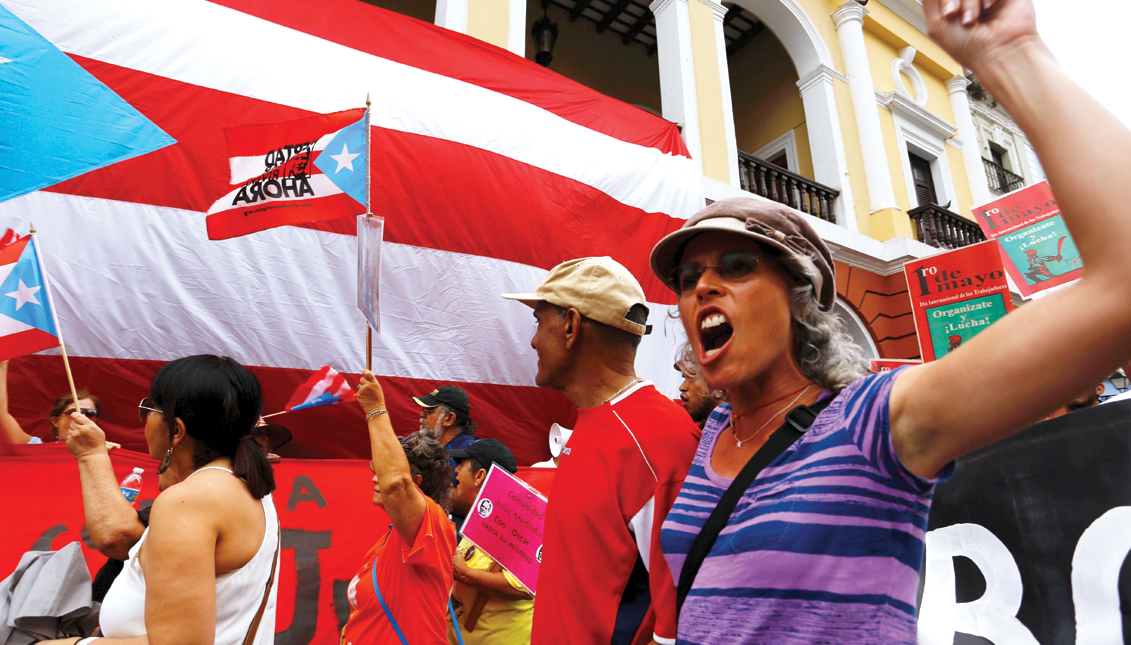
In 2006, the University of North Carolina Press published Puerto Rico in the American Century, a history of Puerto Rico since 1898, written by César J. Ayala and I.
Labour, anti-Zionism and anti-Semitism
| by Sabby Sagall September 21, 2016 |

Last April a row engulfed Ken Livingstone, former Labour mayor of London, and Naz Shah, Labour MP for Bradford West, following remarks they made about Israel and Zionism. They were suspended from the Labour Party, with Naz Shah having the parliamentary whip withdrawn. Shah has been reinstated, and though Livingstone has demanded that he too be reinstated, a decision has yet to be made by Labour’s National Constitutional Committee.
Aiding and Abetting Apartheid
Obama’s new military aid pledge to Israel will help further the country’s crimes.
| by Stephen R. Shalom September 20, 2016 |

Mexico’s Teachers Movement; From Class War to Death Squads
| Dan La Botz September 18, 2016 |
 Mexico’s dissident teachers have been engaged in a strike against the Education Reform Law since May 16 of this year--four months! Their strikes of tens of thousands, led by the National Coordinating Committee (la CNTE), a caucus within the Mexican Teachers Union (el SNTE), have also engaged in protest marches, the blocking of highways and railroads, the commandeering of government vehicles, and the occupation of government buildings.
Mexico’s dissident teachers have been engaged in a strike against the Education Reform Law since May 16 of this year--four months! Their strikes of tens of thousands, led by the National Coordinating Committee (la CNTE), a caucus within the Mexican Teachers Union (el SNTE), have also engaged in protest marches, the blocking of highways and railroads, the commandeering of government vehicles, and the occupation of government buildings.
The government has responded by docking teachers’ pay, firing them, sending the police to beat them, and issuing warrants and arresting teacher leaders. One can only call what has gone on in Chiapas and Oaxaca and to a lesser extent in Guerrero and Michoacán class war.
Now there also appear to be death squads carrying out executions of teachers and their allies. So far at least three assassinations have taken place: a teacher, a parent, and a lawyer for the union. This is an ominous and very dangerous escalation of political violence.
Ante-, anti-institutionalism
| by Eli Nadeau September 17, 2016 |
 In the clear, critical light of day, illusory administrators whisper of our need for institutions, and all institutions are political, and all politics is correctional…Politics proposes to make us better, but we were good already in the mutual debt that can never be made good. We owe it to each other to falsify the institution, to make politics incorrect, to give the lie to our own determination. We owe each other the indeterminate. We owe each other everything. (Moten and Harney 2013, 20)
In the clear, critical light of day, illusory administrators whisper of our need for institutions, and all institutions are political, and all politics is correctional…Politics proposes to make us better, but we were good already in the mutual debt that can never be made good. We owe it to each other to falsify the institution, to make politics incorrect, to give the lie to our own determination. We owe each other the indeterminate. We owe each other everything. (Moten and Harney 2013, 20)
The Right To Educate
| by Nadia Elia September 16, 2016 |

The 2016-2017 academic year has just started in occupied Palestine, and with it come the hopes and dreams of young students, but also the daily challenges of walking to school past Israeli soldiers, or driving through checkpoints in the West Bank, or assigning a culturally and politically relevant curriculum in annexed East Jerusalem, where Israel is trying to impose an Israeli curriculum in Palestinian schools.





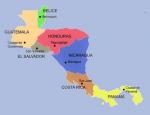
 The month of May witnessed the second round of massive general strikes to hit Greece in 2016. Mobilizations on May Day were followed by four days of strikes in the lead-up to the Syriza government passing its austerity pension bill.
The month of May witnessed the second round of massive general strikes to hit Greece in 2016. Mobilizations on May Day were followed by four days of strikes in the lead-up to the Syriza government passing its austerity pension bill. Rosa Luxemburg’s defense of socialist democracy and her critique of the Bolsheviks in her pamphlet The Russian Revolution (1918) are well known. Less well known and often forgotten is her critique of bourgeois democracy, its limits, its contradictions, and its narrow and partial character. We propose to examine this critical line of thought in some of her political writings without any pretentions to completeness.
Rosa Luxemburg’s defense of socialist democracy and her critique of the Bolsheviks in her pamphlet The Russian Revolution (1918) are well known. Less well known and often forgotten is her critique of bourgeois democracy, its limits, its contradictions, and its narrow and partial character. We propose to examine this critical line of thought in some of her political writings without any pretentions to completeness. This essay was originally a talk at the conference held at the New School for Social Research on April 21-22, 2016.
This essay was originally a talk at the conference held at the New School for Social Research on April 21-22, 2016.
 I don’t need to tell you we face an existential threat. Scientists tell us we face a “climate emergency.” Last year was the hottest year ever recorded, beating 2014, which beat 2012. We break new records every year. The fourteen hottest years ever recorded have been recorded since 2000. January and February temperatures were torrid.
I don’t need to tell you we face an existential threat. Scientists tell us we face a “climate emergency.” Last year was the hottest year ever recorded, beating 2014, which beat 2012. We break new records every year. The fourteen hottest years ever recorded have been recorded since 2000. January and February temperatures were torrid. Perhaps ironically, shortly after writing the following memorial for Arthur Lipow, longtime New Politics sponsor Bogdan Denitch died on March 28 at the age of 86.
Perhaps ironically, shortly after writing the following memorial for Arthur Lipow, longtime New Politics sponsor Bogdan Denitch died on March 28 at the age of 86. The democratic left is poorer today for the loss of a longtime active comrade. Arthur Lipow, a former member of the editorial board of New Politics, died this year on January 6, aged 81, his wife Gretchen by his side. Arthur grew up in Southern California and attended high school in Pasadena. He received his BA in sociology from UCLA in 1955.
The democratic left is poorer today for the loss of a longtime active comrade. Arthur Lipow, a former member of the editorial board of New Politics, died this year on January 6, aged 81, his wife Gretchen by his side. Arthur grew up in Southern California and attended high school in Pasadena. He received his BA in sociology from UCLA in 1955. English anarchism has produced a number of fine cartoonists, including Clifford Harper, John Olday, Paul Petard, and, arguably, the artist Hunt Emerson and the writer Alan Moore.
English anarchism has produced a number of fine cartoonists, including Clifford Harper, John Olday, Paul Petard, and, arguably, the artist Hunt Emerson and the writer Alan Moore. Bernie Sanders’ presidential campaign has rocketed across the political landscape in this most abnormal of election seasons—an independent, self-defined democratic socialist running in the Democratic primary contest.
Bernie Sanders’ presidential campaign has rocketed across the political landscape in this most abnormal of election seasons—an independent, self-defined democratic socialist running in the Democratic primary contest. Rather than start his book about climate change with a solitary man contemplating a streambed run dry or taking in the eternal wonders of an old-growth forest, Roy Scranton begins Learning to Die in the Anthropocene in occupied Iraq in 2003, where Scranton served as a private in the U.S. Army.
Rather than start his book about climate change with a solitary man contemplating a streambed run dry or taking in the eternal wonders of an old-growth forest, Roy Scranton begins Learning to Die in the Anthropocene in occupied Iraq in 2003, where Scranton served as a private in the U.S. Army. The editors of these volumes have provided an invaluable service, bringing renewed attention to the highly original and enduringly contentious critique of Capital that arose from one of the most universally revered figures of the revolutionary movement.
The editors of these volumes have provided an invaluable service, bringing renewed attention to the highly original and enduringly contentious critique of Capital that arose from one of the most universally revered figures of the revolutionary movement. E.P. Thompson (1924–1993) wore several hats during his life. His magnum opus as a historian was The Making of the English Working Class, one of the greatest history books written in the twentieth century in any language. He fought tirelessly for nuclear disarmament in the 1980s, which almost surely took years off his life.
E.P. Thompson (1924–1993) wore several hats during his life. His magnum opus as a historian was The Making of the English Working Class, one of the greatest history books written in the twentieth century in any language. He fought tirelessly for nuclear disarmament in the 1980s, which almost surely took years off his life. Temma Kaplan’s Democracy: A World History arrives at a timely moment. With presidential candidates and U.S. officials alike evoking the term “democracy” as a justification for political movements or a pretense for extraterritorial violence, Kaplan’s history of democracy offers a sorely needed study at an opportune time.
Temma Kaplan’s Democracy: A World History arrives at a timely moment. With presidential candidates and U.S. officials alike evoking the term “democracy” as a justification for political movements or a pretense for extraterritorial violence, Kaplan’s history of democracy offers a sorely needed study at an opportune time. The American left is today confronted with a situation it has not dealt with in some time—something approaching broader political relevance. From the rise of Occupy to Black Lives Matter to the Bernie Sanders campaign, movements of the left are having a sustained impact on American politics that they have not had for decades.
The American left is today confronted with a situation it has not dealt with in some time—something approaching broader political relevance. From the rise of Occupy to Black Lives Matter to the Bernie Sanders campaign, movements of the left are having a sustained impact on American politics that they have not had for decades.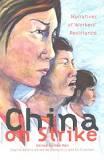 China has the world’s largest population, about 1.4 billion people, with a working age population of about 950 million, hundreds of millions of them wage laborers. Most of us know little about the Chinese workers or the recent workers’ movement that has developed so rapidly, especially since the 1990s.
China has the world’s largest population, about 1.4 billion people, with a working age population of about 950 million, hundreds of millions of them wage laborers. Most of us know little about the Chinese workers or the recent workers’ movement that has developed so rapidly, especially since the 1990s.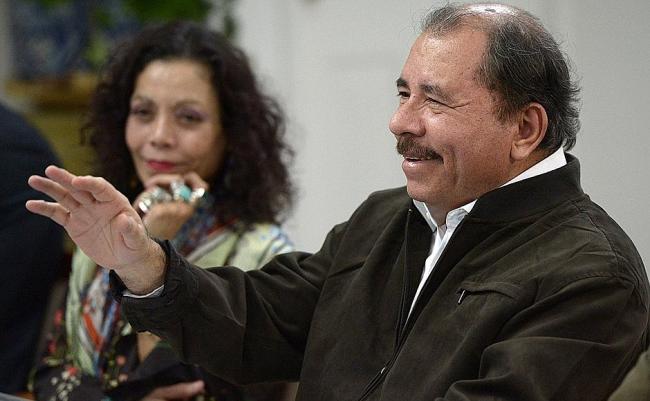

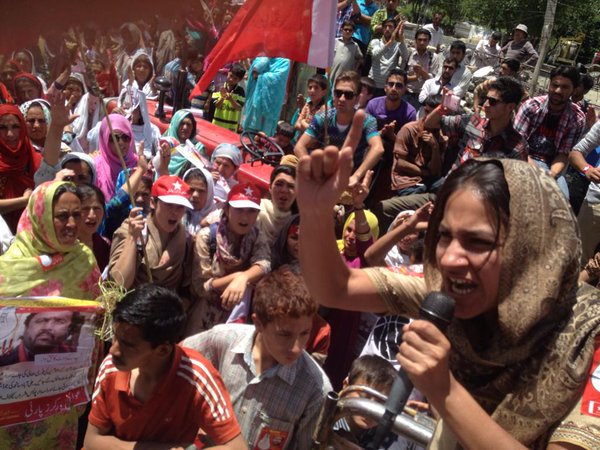



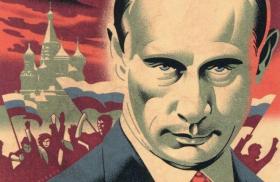 Michel Eltchaninoff. Dans la tête de Vladimir Poutine. Arles: Solin/Actes Sud, 2015. 171pp.
Michel Eltchaninoff. Dans la tête de Vladimir Poutine. Arles: Solin/Actes Sud, 2015. 171pp.

